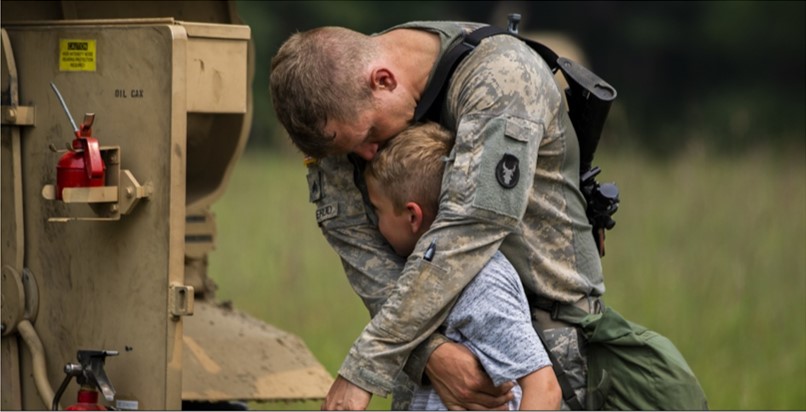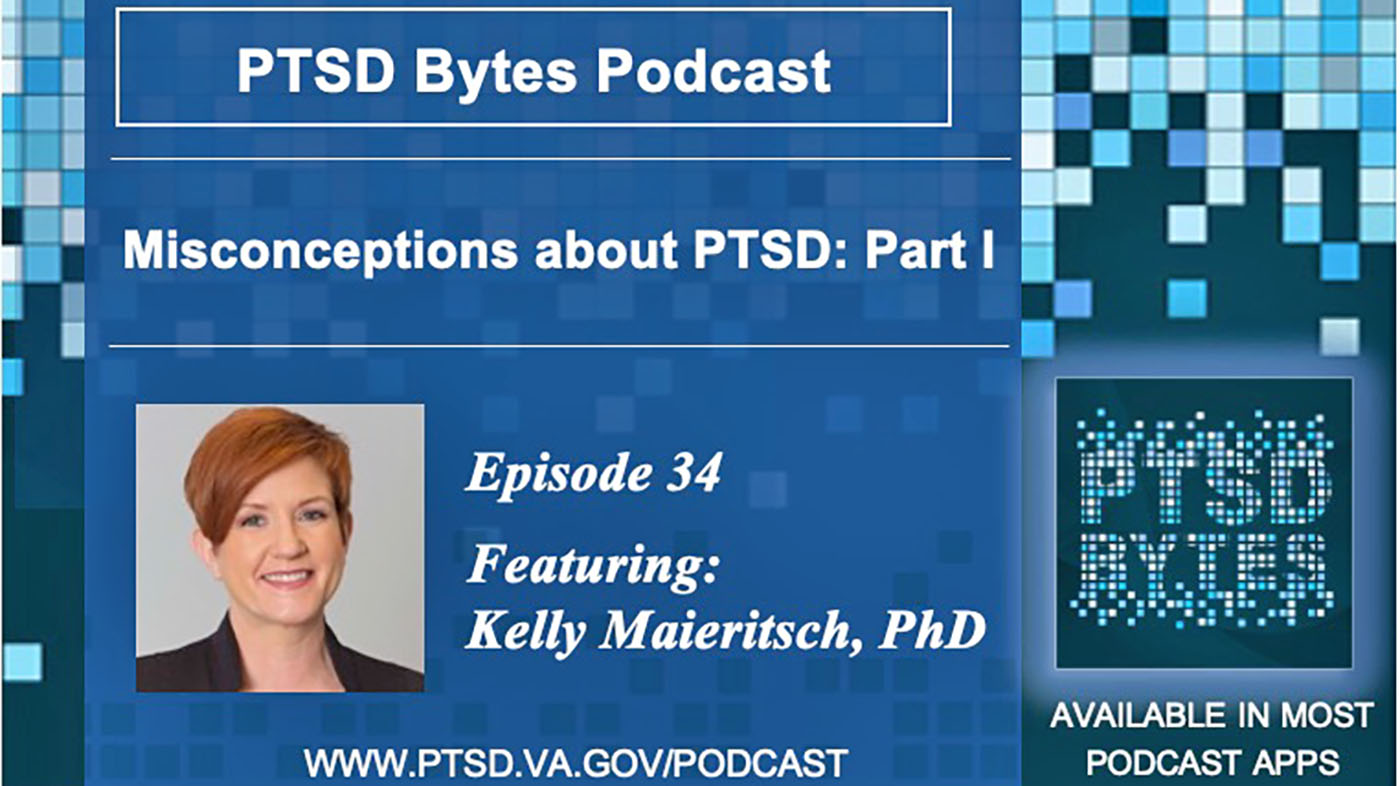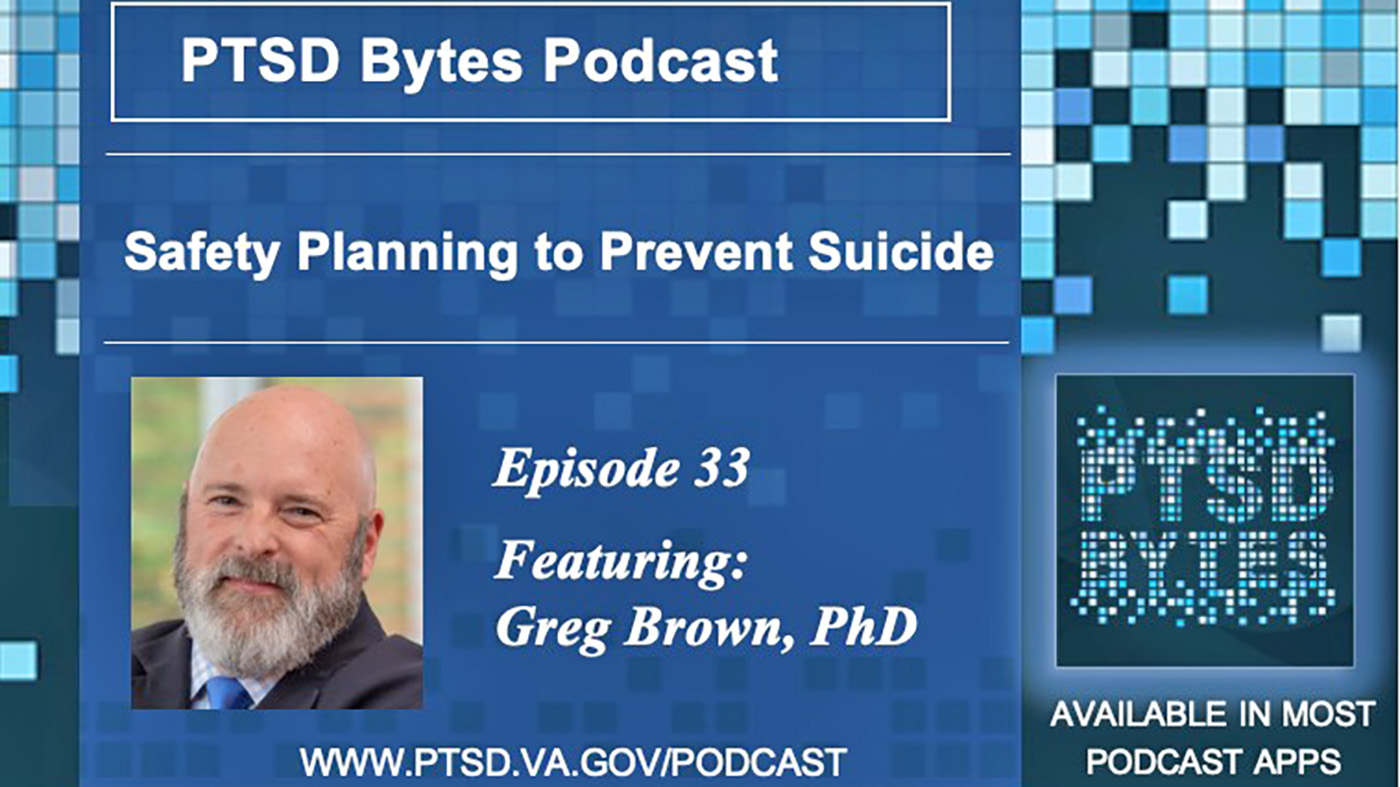Fear for one’s life is considered a normal reaction to a traumatic event, nonetheless it is far from being the only common reaction observed in response to trauma.
In a recent study, Center of Excellence Investigators, doctors: Sheila Frankfurt, Bryann DeBeer, and Eric Meyer, and their colleagues explored the effects of another typical reaction to trauma that has been largely understudied: moral injury.

Dr. Sheila Frankfurt is an investigator at the VISN 17 Center of Excellence for Research on Returning War Veterans.
Moral injury refers to a psychological harm resulting from either (1) acting, failing to prevent, or witnessing actions that violate an individual’s deepest values and principles or from (2) betrayal by a trusted authority figure in a high stakes situation. These actions and events are called “morally injurious events.”
When memories of these morally injurious events are incompatible with Veterans’ own views of who they are and what they stand for, they may experience intense feelings of guilt, shame and rage. If this inner conflict is unresolved, it may lead to a moral injury syndrome characterized by depression, re-experiencing and avoidance trauma symptoms, substance abuse, spiritual/religious decline, and suicide.
Although the typical focus of moral injury research are “perpetration-based” events, Frankfurt and colleagues’ study tested whether the definition of morally injurious events should include military sexual trauma (MST), as this may be experienced as a betrayal-based morally injurious event.
In their study, Frankfurt and colleagues sought to understand the pathways through which military traumas, like combat exposure and MST, ultimately lead to a moral injury syndrome, characterized by concomitant PTSD and depression.
Analyzing data from more than 300 post- 9/11 veterans, the study found that whether traumatic events were appraised as betrayal- or perpetration-based, explained the presence of PTSD-depression symptoms. For instance, in MST, betrayal explained the association between traumatic events and PTSD-depression symptoms, while in combat exposure events, it was perpetration that accounted for this relationship.
Additionally, Frankfurt and colleagues found some evidence suggesting that the self-focused experience of shame, but not the behavior-focused experience of guilt, further links combat exposure to PTSD-depression symptoms.
Overall the results suggest that moral injury can develop through different pathways following military traumas. Given that in recent years moral injury has been identified as a unique source of distress in Veterans, the results of this study are a promising early step in helping identify modifiable factors that can be used to develop targeted treatments to relieve the burden of moral injury.
For more information about research taking place at the VISN 17 Center of Excellence for Research on Returning War Veterans, visit https://www.mirecc.va.gov/visn17/news.asp.
About the author: Richard W. Seim, Ph.D., is the director of Training and chief of Education & Dissemination Core for VISN 17’s Center of Excellence for Research on Returning War Veterans.
Topics in this story
More Stories
Be ready before a suicide crisis by learning about resources that are available. You don’t have to face it alone.
In a two-part series, Dr. Colleen Becket-Davenport discusses some common myths surrounding PTSD with Dr. Kelly Maieritsch.
In this episode of the PTSD Bytes podcast, we speak with with Dr. Greg Brown, Philadelphia VA clinical psychologist, about how safety planning can prevent suicide.






Funny, it has been my experience that if you’re looking for morality, don’t go into the service. I’m a 25 year MST survivor. Back in my time, the military did not keep stats on sexual assault and trauma perpetrated on service members because they flat out didn’t want to admit this is a HUGE HUGE problem. Because I demanded justice be served, there’s that MORALITY again, I got treated like I was crazy or guilty of a crime myself. Tried committing suicide TWICE. Fast forward 2 decades later, I finally got vindication when I received 70% SERVICE-CONNECTED disability. My 20+ year VSO said I had one of the most documented cases she had ever seen and frankly we were both stunned my file had not been “sanitized”. Because they did that to a LOT of service members. So after suffering 25 years, all I got was retroactive 4 months compensation. No one dares mention morales and the military in the same sentence to me. I signed a check for my life knowing full well, I may loose it. What I didn’t count on was them taking my soul.
I am witness to the fact the VA still censors what it doesn’t want revealed. You still can’t trust the VA.
I have been in therapy in the VA system for 28 yrs. in the 90’s my therapist had me talk to a priest about stepping over my moral boundary, he called it the dark side of our humanity that combat vets have to do over and over and then we bury it because we don’t want anyone to know what we were capable of doing. we were raised with a morality, thou shalt not kill. weather we were religious or not, and being in combat we crossed that line over and over. we put it in a box in our mind so that no one would see the evil we were capable of. but it will set and fester and explode when it comes out. we need to talk about it without the fear of being judged for our actions. then we can grieve and release it.
My wife and I have been battling with the VA for years. I finally have been diagnosed with PTSD. Now the focus is on what should be done about it.. VA staff now calls us Mr, or Miss rather than, hey you.” I continue telling the folks at the local VA I know President Trump informed them they must do that. How many Veterans believe they mean it? I think they are, for the most part, just following instructions. In all fairness, there may be some that really mean it. I wonder if, when they meet a Veteran on the street, if they thank her/him for their service. I guess I have received such bad treatment from the VA in the past it has left a lasting bad impression with me.
We need to continue praying for those still deployed.
God bless to all
Moral injury could also occur as part of the aftermath of trauma, including MST. For example, when MST goes unreported due to fears of retaliation, it adds a layer of moral injury that reinforces said injury. Thoughts from survivors of MST may include, “If I had said something back then, I could have stopped the perpetrator from sexually harming other fellow brothers and/or sisters in arms.” Many times, however, the fear of retaliation after disclosing MST weighs heavily on victims who feel not only betrayed by those who harmed them sexually, but also betrayed by being directly or indirectly silenced. Victims/survivors of MST may feel responsible for not speaking up to prevent future victimization in others who were sexually harmed by the same person. Therefore, the aftermath of trauma (including shame) coupled with guilt from non-disclosure (presumed future prevention and/or proper documentation of the offender’s misconduct) could correlate with moral injury.
On a different note, those who have reported MST may have received a misdiagnosis of a personality disorder or adjustment disorder, thus leading to a less-than-honorable discharge for their disclosure of both MST and post-trauma symptoms. In such cases, not only was MST a representation of a moral injury, but so, too, were the misdiagnoses and therefore wrongful discharge statuses that followed. Perhaps those victims/survivors of MST feel betrayed by not only the perpetrators, but also others to whom they disclosed, as well as the chain of command that followed through with psychiatric evaluations and discharges. Therefore, moral injury may be felt by not only the victims of MST, but also (later on) by those who recalled their (improper) documentation of the victim (e.g., misdiagnosis, less-than-honorable discharged based on misdiagnosis). As such, both victim and those affected by their actions toward the victim may experience moral injury as well. Betrayal trauma theory and other theories, I’m sure explain all of the above and how betrayal in what would have been trusted relationships strongly impact victims’ lives long-term! Perhaps those theories could also extend vicariously through those who had mistreated, misdiagnosed, or misrepresented victims and their disclosure of MST.
Continuing on this notion, perpetrators of MST may also experience latent forms of moral injury. Moral injury may also be experienced later on by those who “got away” with their MST perpetration but later regretted their actions and thus corrected their behaviors. Perhaps perpetrators of MST were peer-pressured into doing that, which may add to the weight of their moral injuries by following unsanctioned “orders” or feeling belonged and respected by those who once thought that sexual trauma was a “tradition” of sorts. Perpetrators who were discharged honorably may fear disclosure later on and may therefore feel remorse, silenced (to protect themselves and others), etc. Perhaps perpetrators may only speak about combat-related or military-work-related experiences in terms of moral injury without fully disclosing their sexual misconduct or even other forms of misconduct. Therefore, they may also experience moral injury, which doesn’t excuse what they did, but it nonetheless needs healing. In criminal justice, restorative justice and rehabilitation theories offer hope in helping perpetrators acknowledge what they’ve done, attempt to make amends, and attempt to change their behaviors (if they haven’t already done so).
It would be interesting to see how research on moral injury develops in terms of both MST and combat-related traumas, secondary or vicarious traumas, and all parties involved. Further, it would be interesting to note how moral injury impacts a person’s ecological losses, in addition to identity/reputation losses. Ecological losses are tough when considering one’s identity and reputation in the world. Ecological losses stemming from trauma-related symptoms and moral injury may include job loss, career loss, status loss, SES loss, reputation loss, filial loss, identity loss, military family loss, and other conventional and unconventional grief and loss types. When victims are stigmatized for their trauma-related symptoms and/or disorders, and when perpetrators are not offered restorative justice options to help both their victims and themselves, and when both victims and offenders are not offered “second chances” in terms of rehabilitation as veterans or continued military personnel (even if their NJP and/or discharge status is/are warranted), they are not able to heal, are less likely to disclose what happened, and are more likely to suffer in silence for years after the traumatic events. More research should also focus on ecological losses and their relationship with military traumas, post-trauma symptoms (e.g., depression, re-experiencing, PTSD, peritraumatic dissociation, etc.) and behaviors (e.g., suicidal ideation, irritability toward others, substance abuse, etc.), and moral injury.
I am a former AF ER medic during the Vietnam Conflict. I’ve witnessed horrific physical wounds but now as a clinical psychologist I see the plethora of so-called “invisible” wounds such as TBI, PTSD, clinical depression, and compacted grief. I am not familiar w/ moral injuries.
I am also quite concerned about escalating suicides in combat vets and non-combatant active duty members. I conduct research on the impact of repeated combat trauma, and have several articles published in this regard. I provide free clinical consultations to Viet Vets particularly.
I support an array of clinical interventions inc. ongoing group therapy as it recapitulates the essential psychosocial unit: the squad.
Rich
The writings of Nancy Sherman, philosopher and psychiatrist, who teaches at Georgetown University have been extremely helpful to me as a Vietnam veteran who has suffered, and continues to suffer, from “moral injury”. Her books, “The Untold War”, “After War” and “Stoic Warriors” helped me to better understand my particular version of PTSD. I recommend them to all combat veterans and those who treat them.
I have been working with a Psychiatrist and a Psychologist for a few years with my PTSD issues, and have discussed often about this being one of the roots of my issues. Here at the VA hospital in Indianapolis, I have not only been working with the mental health team but also with the Chaplain’s office with this issue. Working with the mental health department and the Chaplain’s office, along with medications, has provided some relief from the PTSD, but I don’t think it will ever go away. By the way, I am a Vietnam veteran, so this has been around for a long time.
We, the veterans, do not diagnose ourselves well at all. The spouse needs to be involved in most of the diagnosis we go through. They see us for what we are and we see us for what we want to see.
We do not see the hurt we inflict on other people, spouses do.
We usually start getting the symptoms “after” we retire.
We work night and day and stay busy and the symptoms stay hidden from us. Then we retire and suddenly it all comes crashing down on us and we don’t know what happened.
After reading the article, I was able to finally “name” all of mixed and draining emotions I experience. I wish they would have delved deeper in the study for those whose battling dual moral traumas. MST & Combat, this is a daily double dose of moral trauma and conflict for more veterans than people realize. It’s a start
This describes exactly what I’ve been feeling/complaining about for years. Never able to really put a finger on it until reading this article. Now that it is defined, what can be done to remedy it? Is there a remedy?
A lot of veterans can never get treatment due to the VA’s mandatory “Release of Medical Information” forms that veterans are required to sign. Why can’t the veterans get help & treatment without the VA telling the entire entire world their most personal issues?
Morals are Major keys, Laura . Thank you for your post as i feel a sense of corruption by serving the same government that allows lies to soilders who look up to the upper command chain. I gotten raped by a older seargant because his wife was having issues, and seargant * forced me and humiliated me, told me to do it or id be domoted. Morally and Mentally ill struggling to stay strong through the last few months not knowing my failure to admit to myself the shame and guilt of disgust back in 2010. I tried to commit suicide at the cemetery. The captain saw me as failing to be on time … truth is probably busy training I had a Trumatic brain injury. I would show up to information that was not scheduled, as well as not show up to schedule formations . when being just charged by medical dental vision and psychiatric, one sergeant and me with the psychiatric test , I was under the impression that they were looking out for my best interest. They put on my DD 214 stuff back then I didn’t understand but now I know. Captain at Fort Sill prior to discharge explain that in months my status will automatically upgrade from general to honorable . Right now it is 2019 , yet, found myself using substance call me talking to myself tumors in my body , haunting thoughts for instance just know I just parked my car I am morally beat myself up for an hour at a time off the highway. This also led to a lot of doubt personally in The United States System. On march 28th 2019 i also have a sentence date from Pima County supreme court in the state of Arizona versus myself in a Legal battle. My intentions were harmless But now I feel like I had went from hero (320 pt scores) to zero i’m possibly could be facing jail time, in this state I have no family over a year now. Still I continue to harm myself because of morales that were instilled in me. I am what i am black or white, but because of the color of my skin even though I ignored it, i had bigger things to worry about, still affecting our Civilization.
I guess i was not so crazy after all. That is exactly what i been labeling my experiences, moral injury. Wow. What do i do with this info. Im so tired of the ups and downs.
Laura – As a fellow experiencer of M.I. I can recommend that you seek a licensed individual that has training in and experience with helping PTSD survivors, as well as any other experiences specific to you – we are each unique in who we are and in how we experience life, so there isn’t a “one size fits all” solution. Make an appointment with your VA provider (or, it may be faster to secure message your VA pcp) to request a consult for therapy. My own circumstances made it necessary and important to see a therapist in the community – if I remember correctly, my request was approved by my VA pcp and a consult for care was written all within 2-3 days; within a week I had found a therapist to try (worked out great in this case), and had my first session within a month. That was over two years ago now.
I was/am also open to medication in conjunction with therapy – it’s helped stabilize the extreme ups and downs for me (mostly downs) so that I don’t feel so “crazy” or overwhelmed in the bad times.
You’re not alone and it can get better – and I know for me that’s important to keep telling myself, because the ups and (mostly) downs can get really, really bad.
Lots and lots of really good people join the military – and then we’re trained and expected to do some really horrible things for the sake of or in the name of Righteousness and Freedom and Democracy… or, really bad and horrible things happen to us while we’re “doing Good” in support of the ideals of our Constitution… It’s little wonder then that we suffer Moral Injury as we try to make sense of what’s happened, of what we think we’ve become, of how we’re going to fit back into the society we came from… it’s a philosophical mess, especially in a society/culture that exceedingly values black&white thinking.
Use this info as a starting point; use it as a piece of armor to help affirm what you’ve experienced and survived; use it to advocate for yourself, for your care, and for your ultimate well-being.
I hope this helps, and I wish you well.
Very respectfully – Mike
Me too. I was morally injured by shipmates saying that I wasn’t a “man” because I stayed away from “Ladies of the Night” and away from bars except when I had to go to one on Shore Patrol duty. I finally went to a bar in Japan and spent the night with a bar maid while stone sober. I came down shortly after with a urinary tract infection and I’ve felt like a horrible person for 48 years. It’s affected my marriage, my self respect, etc.